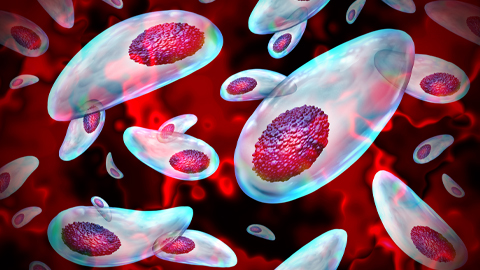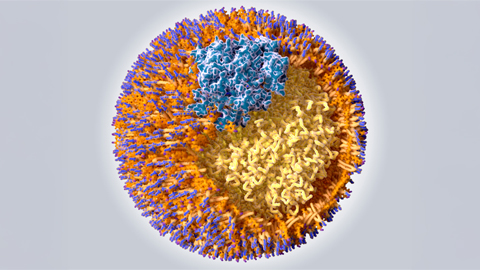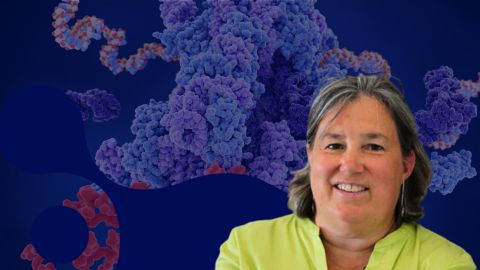Faulty immune response may be behind lingering brain trouble after COVID-19
A tussle with COVID-19 can leave people’s brains fuzzy. SARS-CoV-2, the virus behind COVID-19, doesn’t usually make it into the brain directly. But the immune system’s response to even mild cases can affect the brain, new preliminary studies suggest. These reverberating effects may lead to fatigue, trouble thinking, difficulty remembering and even pain, months after the infection is gone.
It’s not a new idea. Immune systems gone awry have been implicated in cognitive problems that come with other viral infections such as HIV and influenza, with disorders such as myalgic encephalomyelitis/chronic fatigue syndrome, or ME/CFS, and even from the damaging effects of chemotherapy.
What’s different with COVID-19 is the scope of the problem. Millions of people have been infected, says neurologist Avindra Nath of the National Institutes of Health in Bethesda, Md. “We are now faced with a public health crisis,” he says.

To figure out ways to treat people for the fuzzy thinking, headaches and fatigue that hang around after a bout with COVID-19, scientists are racing to figure out what’s causing these symptoms. Cognitive neurologist Joanna Hellmuth at the University of California, San Francisco had a head start. As someone who had studied the effects of HIV on the brain, she quickly noted similarities in the neurological symptoms of HIV and COVID-19. The infections paint “the same exact clinical picture,” she says.
HIV-related cognitive symptoms have been linked to immune activation in the body, including the brain. “Maybe the same thing is happening in COVID,” Hellmuth says.
She and her colleagues looked for differences in the fluid that surrounds the brain and spinal cord in 13 people who had lingering cognitive symptoms from COVID-19 and four people who had no cognitive symptoms. The four people without cognitive symptoms had normal cerebrospinal fluid. But 10 of the 13 people who did have lasting symptoms had abnormalities in their fluid, some of which point to immune system reactions.
So far, the analyses can’t pinpoint the precise changes that may be important. Possible suspects are antibodies that can mistakenly attack key proteins in the brain, the researchers say.
The results, published Jan. 19 in Annals of Clinical and Translational Neurology, raise many more questions, but show that there’s a real difference in the cerebrospinal fluid, Hellmuth says. “This is a very small study, but the data suggest that there’s a real biological basis in these COVID-related cognitive changes,” she says. “These are not just people who are stressed out … we’re seeing abnormalities that are not typically seen in brain fluid.”
More hints to the brain troubles come from an analysis of mice and people, posted Jan. 10 at bioRxiv.org, that has not yet been reviewed by other scientists. By analyzing human tissue and mice infected with SARS-CoV-2, researchers showed that immune cells called microglia are overactive in the brain. When microglia shift into high gear, they can damage surrounding brain tissue.
It turns out that microglia overactivity is similar to that caused by toxic chemotherapy treatments, says study co-author Michelle Monje, a neurologist and researcher at Stanford University. “When the reports started coming out about the frequency of persistent cognitive symptoms associated with long COVID, I noted striking similarities between ’chemo-fog’ and ‘COVID-fog,’ and decided we needed to study this.”
Microglia were more active in the brains of mice infected with SARS-CoV-2 than in uninfected mice. A similar pattern emerged when the researchers studied postmortem brain tissue from nine people who died with COVID-19. It’s not clear how well these samples represent the majority of people who experienced mild COVID and are living with the aftereffects.
Infected mice also had higher levels of immune proteins in their cerebrospinal fluid. One in particular, called CCL11, has been tied to cognitive trouble in people that comes with age and in certain psychiatric conditions. People with lingering neurological symptoms of COVID also had more CCL11 in their plasma than people who didn’t have those symptoms, the researchers found.
The new results come with caveats, says neurologist Svetlana Blitshteyn of the University at Buffalo Jacobs School of Medicine and Biomedical Sciences in New York, who also directs the Dysautonomia Clinic. “They’re small studies, and obviously they are not definitive,” she says, “but the preliminary evidence speaks for itself.” It’s becoming clearer now that the brain fog that comes after an infection may be “rooted in neuroinflammation.”
Figuring out the cause of the neurological problems may reveal a treatment. Laboratory studies have pointed to potential therapies that can interrupt this immune system overreaction, particularly in brain inflammation caused by chemo, Monje says. She and colleagues are studying whether those same treatments might help with COVID-19.
Tragic as the pandemic is, it may ultimately lead to something good, adds Nath, who is setting up a small clinical trial to study possible long COVID treatments. All these other syndromes such as ME/CFS that researchers have struggled to understand “might benefit from what we learn here from long COVID. We might be able to develop treatments for them all.”
This story was originally published by Science News, a nonprofit independent news organization.
Enjoy reading ASBMB Today?
Become a member to receive the print edition four times a year and the digital edition monthly.
Learn moreGet the latest from ASBMB Today
Enter your email address, and we’ll send you a weekly email with recent articles, interviews and more.
Latest in Science
Science highlights or most popular articles

Targeting Toxoplasma parasites and their protein accomplices
Researchers identify that a Toxoplasma gondii enzyme drives parasite's survival. Read more about this recent study from the Journal of Lipid Research.

Scavenger protein receptor aids the transport of lipoproteins
Scientists elucidated how two major splice variants of scavenger receptors affect cellular localization in endothelial cells. Read more about this recent study from the Journal of Lipid Research.

Fat cells are a culprit in osteoporosis
Scientists reveal that lipid transfer from bone marrow adipocytes to osteoblasts impairs bone formation by downregulating osteogenic proteins and inducing ferroptosis. Read more about this recent study from the Journal of Lipid Research.

Unraveling oncogenesis: What makes cancer tick?
Learn about the ASBMB 2025 symposium on oncogenic hubs: chromatin regulatory and transcriptional complexes in cancer.

Exploring lipid metabolism: A journey through time and innovation
Recent lipid metabolism research has unveiled critical insights into lipid–protein interactions, offering potential therapeutic targets for metabolic and neurodegenerative diseases. Check out the latest in lipid science at the ASBMB annual meeting.

Melissa Moore to speak at ASBMB 2025
Richard Silverman and Melissa Moore are the featured speakers at the ASBMB annual meeting to be held April 12-15 in Chicago.

